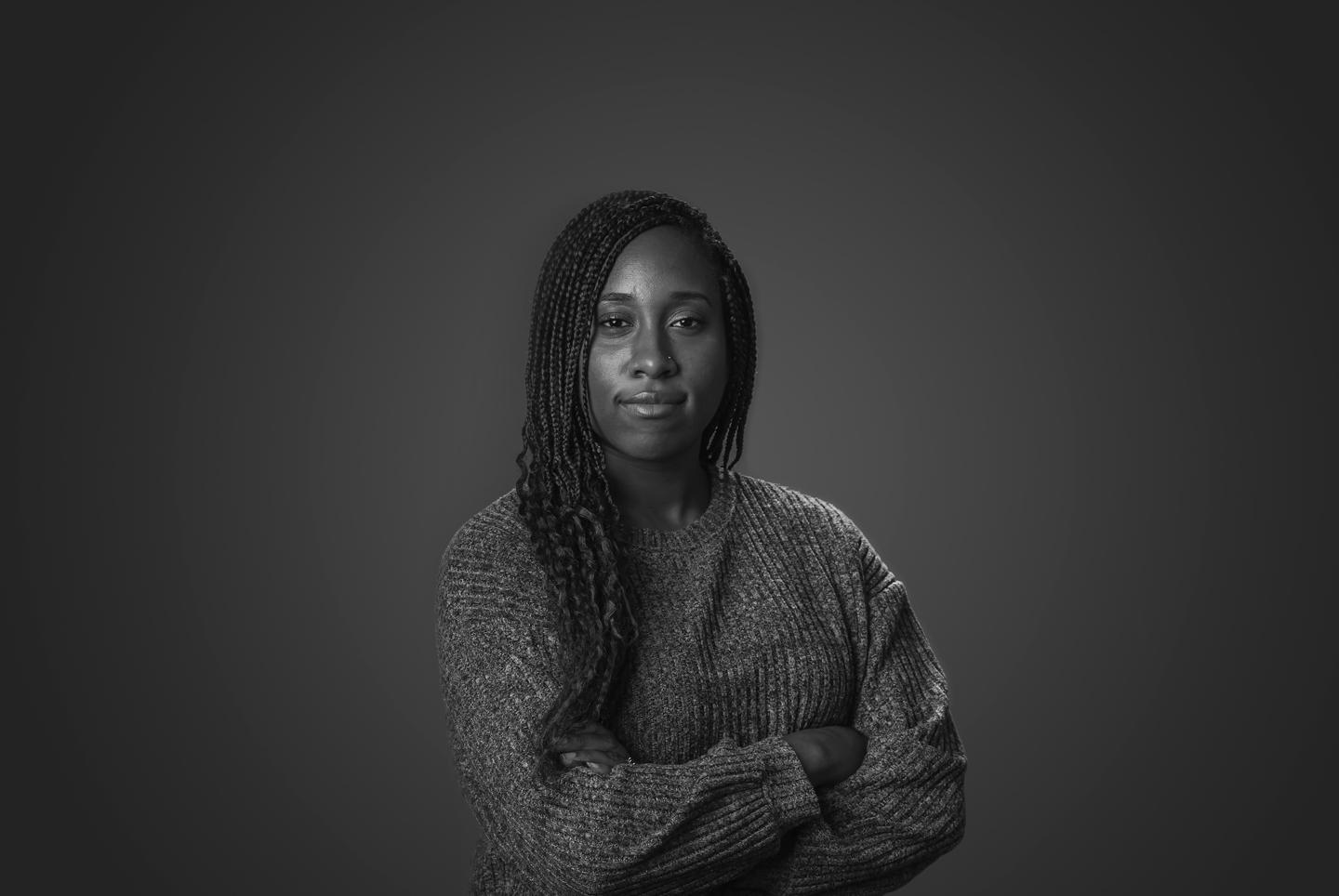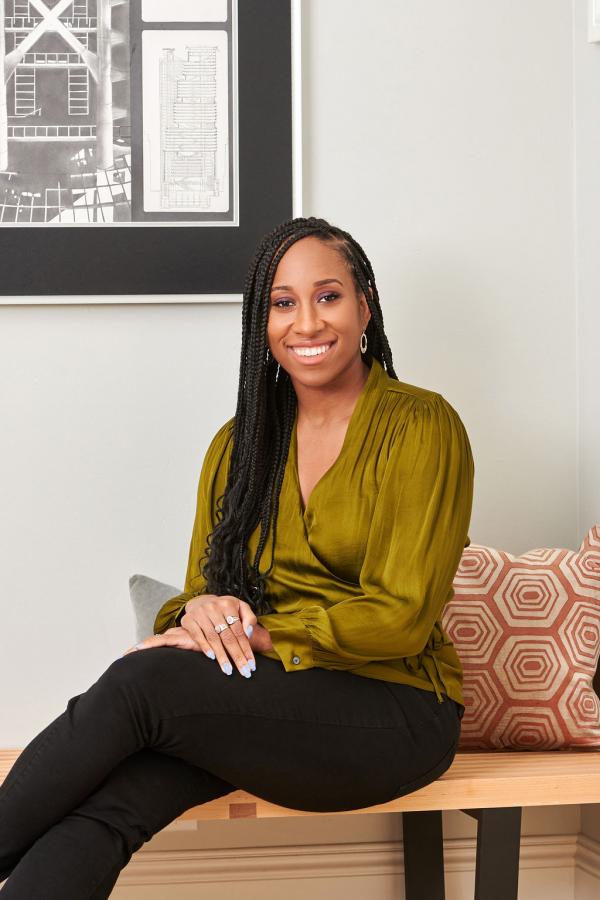"We need leaders who are focused on caring about their teams"
Kaya Thomas ‘17 updates us on her career and talks about leading diverse teams in startups and the tech sector.

Kaya Thomas ’17 is a computer scientist, app developer, writer, and speaker based in Boston. She created We Read Too, a mobile app with a directory of books for children and young adults with characters of color, written by authors of color. She has spoken at conferences around the world on app development and inclusivity in tech. She’s also an iOS engineer who has worked with companies like Slack and Calm. Kaya is currently enrolled in the Leaders for Global Operations dual degree program at MIT, where she’ll pursue both an MBA and a Masters of Science and Engineering degree.
“We have a long way to go...”
When I was on campus and was doing my summer internships in California around 2015, there was a lot of momentum in the discussion about diversity and inclusion in STEM. There was a lot of conversation about it, and many programs focused on getting entry-level folks into the field.
But then, things started to taper off. And I think at that point, for many of the larger tech companies, it was a lot of PR—it felt like companies just had to make a statement saying, “this is what we’re doing about diversity and inclusion.” But by the time I graduated in 2017, it was clear that the efforts over the last four years didn’t result in any real improvement—the numbers weren’t moving at a lot of these companies.
Another problem was a focus on increasing minority hiring rates without paying attention to the inclusion part—making sure people feel supported and included in the workforce where they feel like they can grow their careers. It wasn’t there.
So, I tried to work on that problem. I volunteered with Black Girls Code—I actually started volunteering with them while I was in college. I also began volunteering with Hack the Hood, which helps young adults ages 18-24 learn technical skills to help make websites and a digital presence for nonprofits and local Oakland organizations—that was meaningful to me.
What has your workplace experience been in regard to diversity?
I’ve had the opportunity to work with other Black women engineers, which is very rare. I was grateful for that because I met a lot of mentors who I think really helped me feel confident and solidify my career in engineering.
However, I had an experience where a senior leader in engineering told me I was not ready to go work at a startup—that I should stay at an established company and put my head down and work. The idea was that I should stay put and not go into a risky situation, even though it meant limited growth.
When I did decide to move on it was to a small, startup environment which was not diverse at all. I was the only Black person in engineering—a stark difference from the diversity I’d experienced working for larger organizations. But I think I found that being in a startup environment where I had a lot of opportunity and responsibility helped me grow and solidify my confidence in engineering.

“We need leaders who are focused on caring about their teams, caring about their growth—being of service to them. Because when you have a diverse group, whether it’s racial, gender, or age diversity, everyone has different needs and different ways in which they need to be supported.”
What are qualities of a good leader?
I believe a good leader motivates and inspires people. That’s tough to do. It’s easier to motivate on a superficial level. True leaders inspire people to work with them because of a deep, honorable motivation.
Strong leaders in my life are my parents and my grandmother. The work I’m doing goes back to what they engrained in me from an early age: It’s important to be generous and give back to your community. You don’t live in isolation. Regardless of how much my grandmother has for herself, she always finds ways to give to people. For me, I just can’t sit around and see people struggling. If there’s a way for me to contribute to make their lives better, I’ll do it.
What was a significant leadership experience you had at Dartmouth?
One of my most memorable Dartmouth experiences came in my junior year, when I was revitalizing the Women in Computer Science student organization. I had to figure out how to engage people and rebuild this community. It was a great crash course in organization-building and leadership.
Another way Dartmouth shaped me as a leader was interacting from people from all over the world. I think one thing about being a leader is you have to be able to understand people and be empathetic. Learning from each other and forming community together and being from such different places was really essential to my experience and really grew me as a leader.
What are your thoughts on the importance of leadership and what that needs to look like right now for people of color and women in tech?
I believe in the importance of leadership and service work.
I think that in tech, what I’ve noticed is that a lot of the leaders and founders are a very homogenous group. They’re usually young, white men who happen to have tech skills. They get millions of dollars of funding—but lack vital leadership skills. They don’t understand how to manage and work with different populations.
We need leaders who are focused on caring about their teams, caring about their growth—being of service to them. Because when you have a diverse group, whether it’s racial, gender, or age diversity, everyone has different needs and different ways in which they need to be supported. That’s the type of leadership we need in STEM if we want a more inclusive environment.
What’s something Dartmouth can do better to support underrepresented people in STEM careers?
One thing I think Dartmouth could do better, which I believe all schools can do better, is clear up the misconception that if you want to work in tech that you need to code.
Every tech company has non-technical roles and needs these people. Showing students that there are opportunities to get into this industry without having to be a computer science major or engineering major is important. There’s always product management, marketing, sales, content writing, copywriting... there are so many different roles in the tech industry that are non-technical. Students need education on these other opportunities.